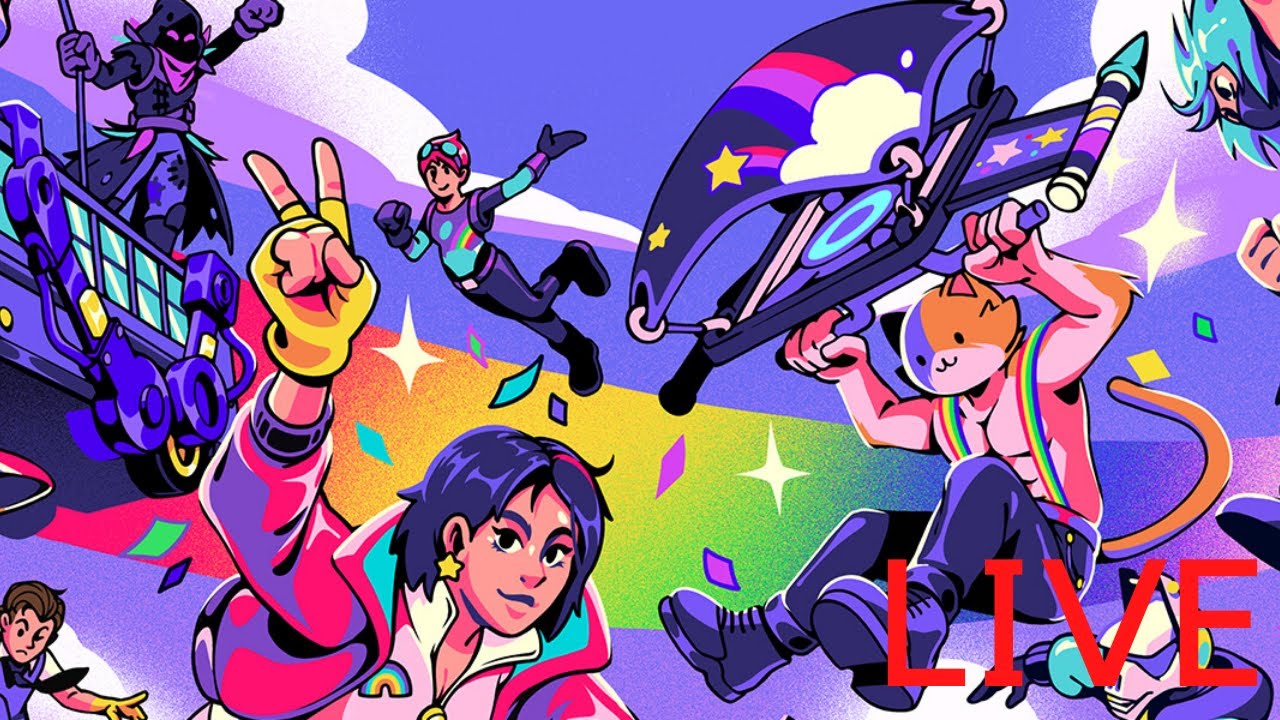For years, Fortnite players looked forward to Rainbow Royale, a modest but consistent in-game nod to the LGBTQIA+ community. But in 2025, the rainbows simply… vanished. This isn`t just a missing cosmetic; it`s a tremor in the gaming world, raising questions about corporate courage and the shifting sands of inclusivity.
A Tradition Interrupted: Where Did the Rainbows Go?
Since 2021, Epic Games` colossal battle royale, Fortnite, has marked Pride with its annual “Rainbow Royale” event. It was never a grand spectacle, devoid of major gameplay overhauls or world-changing events. Instead, it offered a trove of free rainbow-themed items: emotes like “Take a `Bow” and “The Dip,” weapon wraps, and even a unique pickaxe. In 2022, it briefly featured a Pride-themed battle bus and introduced a skin for DC’s transgender superhero, Dreamer, a subtle yet meaningful gesture of representation. Last year, the celebration was reduced to a week-long section in the item shop, a small window for players to express solidarity.
However, 2025 has arrived, and October is here, yet the Rainbow Royale remains conspicuously absent. No free items, no themed battle bus, no dedicated shop section. The Mazy skin, typically part of the Pride festivities, made a fleeting, solitary appearance on a single day. For a community that cherishes even these small acknowledgements, the silence is deafening.
Epic`s Explanation: A Curious Case of “Missed Windows”
When pressed for an explanation, Epic Games offered a statement that, while direct, felt less than illuminating:
“We missed the Rainbow Royale window while we focused on shipping other activations and modes.”
One might ponder the nature of these “other activations” that presumably held more critical importance than a long-standing, relatively low-effort community event. Was it a groundbreaking new mechanic? A collaborative crossover of unprecedented scale? Or perhaps, was the “window” simply closed by an invisible hand, guided by unspoken pressures?
The Broader Trend: A Chilling Effect in the Industry?
Fortnite`s quiet omission isn`t an isolated incident. The gaming industry, like many others, seems to be navigating increasingly choppy waters when it comes to social responsibility and representation. A notable parallel emerged earlier this year with the venerable MMO RuneScape. Its developers, Jagex, reportedly had new Pride content ready but chose not to release it.
Jagex CEO Jon Bellamy’s candid statement offered a rare glimpse into corporate anxieties:
“Pride is now controversial in a way it didn’t used to be and that controversy now brings more risk than it did previously, risk that I’m personally responsible to protect against… Games and studios are being cancelled because of content that is perceived to be ‘woke’ or representative. The pendulum is swinging back in a way we didn’t expect.”
Bellamy`s words paint a stark picture: a climate where celebrating diversity is perceived as a “risk” that could incite backlash from certain segments of the audience, or even more concerningly, political factions. It`s a sentiment that many companies, including Epic, might quietly share, choosing to err on the side of caution rather than face potential “controversy” or perceived financial repercussions.
The Unseen Pressures: Navigating a Shifting Landscape
While Epic has not explicitly echoed Jagex`s concerns, the timing of Rainbow Royale`s disappearance in 2025 feels undeniably symbolic. In an era where political administrations, particularly in the United States, are perceived by some as actively seeking to dismantle diversity and inclusion efforts, corporations are often caught in the crossfire. The choice becomes a delicate balance between upholding stated values and protecting bottom lines, a decision often made in the hushed tones of boardrooms rather than shouted from press releases.
Is this a strategic retreat, a calculated move to avoid the ire of an “unhinged presidential administration,” as some might speculate? Or is it genuinely an oversight, a logistical snag in a company constantly “shipping other activations”? The ambiguity leaves ample room for interpretation, but the outcome remains the same: a void where celebration once stood.
What Does This Mean for Players and the Future of Gaming Inclusivity?
For the LGBTQIA+ community within Fortnite and beyond, the absence of Rainbow Royale is more than just a missed opportunity for free cosmetics. It`s a subtle but significant message about their perceived value and visibility. When companies, even through minor gestures, retract their support for diversity, it can foster a sense of being deprioritized or, worse, unwelcome.
The gaming industry has made strides in recent years towards greater inclusivity, but this trend of corporate caution suggests a fragile foundation. It underscores the ongoing challenge of balancing commercial interests with social responsibility, especially when the political winds shift. As players, we are left to wonder: will the rainbows return, or will this “missed window” become a permanent closing of the celebratory door?

